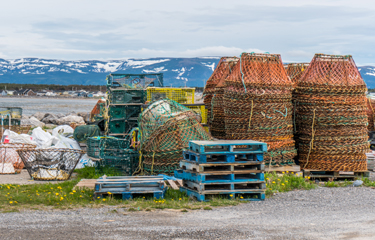Prices are up, but sparring continues in Newfoundland's snow crab fishery

Canadian snow crab prices have continued to creep up since fishermen and processors in Newfoundland ended a stalemate over low prices.
The Fish Food and Allied Workers Union (FFAW) reported the minimum price per pound for snow crab in Newfoundland and Labrador increased to CAD 2.30 (USD 1.74, EUR 1.59) on Sunday, 18 June, up from the CAD 2.20 (USD 1.66, EUR 1.52) minimum price that started a six-week standoff between the union and the Association of Seafood Producers (ASP) – the organization representing processors in the region. That stalemate ended after the FFAW and ASP reached a deal that will increase the minimum price based on increases to the Urner Barry price for snow crab.
The new price is the second increase since fishing finally began in late May, after a previous adjustment was made less than two weeks after crabbers and processors struck their deal.
The price increase comes as crab harvesters continue to claim that processers are ignoring a 20 percent tolerance rule that’s resulting in harvesters “high-grading” to maximize profit.
Since 1998, harvesters and processors have agreed to a 20 percent tolerance for crab under four inches – crab that fetch a lower price. That tolerance allows harvesters to be compensated for smaller legal crab at the higher price for the first 20 percent of any crab harvest.
The system was intended to prevent “high-grading,” or fishermen throwing out legal crab of smaller sizes to maximize the profit from their quotas. That system was also built into the Canada Department of Fisheries and Oceans’ Integrated Fishing Management Plan, as a sustainability measure.
Now, SEA-NL is echoing a FFAW claim processors have been ignoring the 20 percent tolerance agreement and have implemented a zero-tolerance policy, according to the FFAW and Seaward Enterprises Associations of Newfoundland and Labrador (SEA-NL), a nonprofit advocacy group representing inshore fishing vessel owner-operators.
The FFAW said the ASP claims to have the authority to remove the 20 percent tolerance language unilaterally.
“This underhanded move should be concerning to anyone who cares about how our natural resources are managed,” FFAW President Greg Pretty said. “It’s reckless behavior on behalf of these companies, and it’s abundantly clear it’s retaliation for the deal we signed with the premier a couple weeks ago.”
SEA-NL has called on DFO to take immediate action to restore the 20 percent tolerance agreement.
“Conservation must trump profit, which is obviously not the case with the processing sector that is out to scrape every last cent from the inshore fleet at the expense of the future health of the stock,” SEA-NL Executive Director Ryan Cleary said.
According to SEA-NL, processors have continued to ignore the 20 percent agreement and have instead unilaterally eliminated the practice since the end of the dispute over pricing in late May.
“Owner-operators themselves say the incentive to high-grade – especially in light of the severe drop in market price since 2022 – has obviously increased, and is, in fact, taking place on a widespread basis,” SEA-NL said.
SEA-NL called on Canada Fisheries and Oceans Minister Joyce Murray to take action to ensure the 20 percent rule is followed by processors.
“It’s clear the industry-managed snow-crab pricing system – more specifically, the 20 percent tolerance – must be made hard-and-fast DFO policy for the sake of the long-term health of the stock,” Cleary said.
ASP has not issued a public response on the claims being made by FFAW and SEA-NL.
So far this season, Newfoundland's snow crab fishermen have landed 20,787 metric tons (MT) of snow crab, according to the DFO. That is just 38 percent of the 54,727 MT quota set on 30 March,and the FFAW has said the quota is “unlikely” to be caught in 2023.
Photo courtesy of Mary Anne Love/Shutterstock






Share